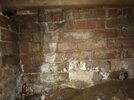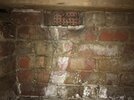- Joined
- 10 Dec 2022
- Messages
- 11
- Reaction score
- 0
- Country

Hi! We have recently purchased a 1930s built house in Greater Manchester. There are a lot of issues that we are discovering after the purchase. Damp and condensation are the usual culprits.
Recently we found out that there is wet clay in the crawl space under the dining room. And it seems there is clay heaving also happening around the same area.
Is this common? Is this ok to ignore? What should we do?
Recently we found out that there is wet clay in the crawl space under the dining room. And it seems there is clay heaving also happening around the same area.
Is this common? Is this ok to ignore? What should we do?
Attachments
-
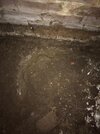 2AED6E70-6FE8-441B-9A00-02851F6EA1E2.jpeg256 KB · Views: 136
2AED6E70-6FE8-441B-9A00-02851F6EA1E2.jpeg256 KB · Views: 136 -
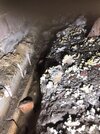 F7A96DF0-1D2B-4009-8366-62F49DDDDADB.jpeg365.8 KB · Views: 134
F7A96DF0-1D2B-4009-8366-62F49DDDDADB.jpeg365.8 KB · Views: 134 -
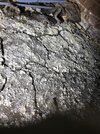 8798B442-C2FB-4715-84E2-500CEE660119.jpeg208.1 KB · Views: 133
8798B442-C2FB-4715-84E2-500CEE660119.jpeg208.1 KB · Views: 133 -
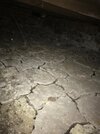 C003023B-E280-4639-BB3D-57DD5DC65D19.jpeg97.6 KB · Views: 141
C003023B-E280-4639-BB3D-57DD5DC65D19.jpeg97.6 KB · Views: 141 -
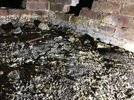 DCB3944D-00CE-4AC1-A8BE-2C1BF9F909F4.jpeg218.9 KB · Views: 144
DCB3944D-00CE-4AC1-A8BE-2C1BF9F909F4.jpeg218.9 KB · Views: 144

